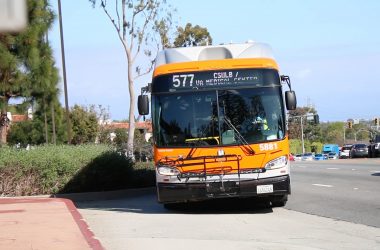HIV is a disease that no one wants to catch, and education is key to prevention, according to the HIV panel held on Wednesday.
Heidi Burkey, a health educator from Student Health Services, spoke about the most updated information regarding HIV. Four HIV positive panelists shared their stories while Burkey facilitated questions for the panelists about their experiences of being diagnosed with HIV and their access to health care.
Nick Morgan, a freshman communications major, was one of the panelists who tested positive for HIV in February 2009. Morgan volunteered to be part of the panel in the hopes of educating others about prevention.
“I want college students to realize that we are being attacked by HIV as young adults,” Morgan said. “As a 21-year-old sexually active CSULB student, infected for a few years without knowing it, I knew I had a duty to inform other CSULB students about their risks.”
About 60,000 people in Los Angeles County live with HIV or AIDS, according to True Ann Pawlik, director of communications for the County of Los Angeles Department of Public Health Office of AIDS Programs and Policy. In 2007, 158 cases of AIDS were reported in Long Beach alone, according to the January 2009 HIV/AIDS Semi-Annual Surveillance Summary from County of Los Angeles Public Health HIV Epidemiology Program.
“The highest rates of HIV are found in communities of color,” Pawlik said.
Long Beach has the second highest number of AIDS cases in the nation, according to Burkey, who counsels and tests around 15 students per week for HIV at the Student Health Services.
“Life is a compromise,” said panelist Lori White.
Sex is the most common mode of contracting HIV, according to the Center of Disease Control and Prevention.
Yet, college students may not be worried about getting AIDs because of how well antiviral medications work today based on many studies, Burkey said.
“If they don’t worry, they should,” Morgan said.
The Student Health Services can help CSULB students with HIV education counseling, and testing, according to Burkey.
If a student tests positive for HIV, they will be referred to the Long Beach Department of Health and Human Services for medical care, Burkey said.
The Long Beach Department of Health and Human Services has an Early Intervention Program which offers patients low-cost doctor visits, and has the AIDS Drug Assistance Program which offers patients with free medications, Morgan said.
Burkey said education is important because students can identify risks of getting HIV, and reduce the risks by behavior modifications such as practicing safe sex.
“[Education] does make a difference,” White said.
However, advances in the medical field are helping HIV positive people live a long life.
“I have been told by my doctor that as long as I have treatment for HIV and live a healthy lifestyle I can expect to live my full life expectancy,” Morgan said.
For more information about Nick Morgan, click on his daily blog: http://www.livingwithnotdyingfrom.blogspot.com.
Heidi Burkey can be reached by phone at (562) 985-7182 for students interested in her services.



